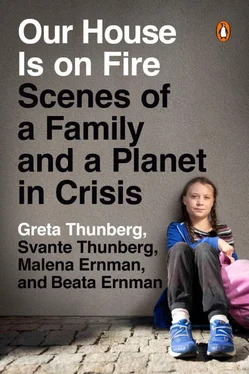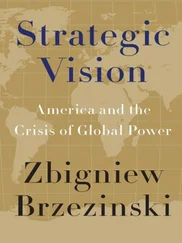Greta Thunberg - Our House Is on Fire - Scenes of a Family and a Planet in Crisis
Здесь есть возможность читать онлайн «Greta Thunberg - Our House Is on Fire - Scenes of a Family and a Planet in Crisis» весь текст электронной книги совершенно бесплатно (целиком полную версию без сокращений). В некоторых случаях можно слушать аудио, скачать через торрент в формате fb2 и присутствует краткое содержание. Город: New York, Год выпуска: 2020, ISBN: 2020, Издательство: Penguin Books, Жанр: Биографии и Мемуары, Публицистика, на английском языке. Описание произведения, (предисловие) а так же отзывы посетителей доступны на портале библиотеки ЛибКат.
- Название:Our House Is on Fire: Scenes of a Family and a Planet in Crisis
- Автор:
- Издательство:Penguin Books
- Жанр:
- Год:2020
- Город:New York
- ISBN:978-0-14313-357-5
- Рейтинг книги:4 / 5. Голосов: 1
-
Избранное:Добавить в избранное
- Отзывы:
-
Ваша оценка:
- 80
- 1
- 2
- 3
- 4
- 5
Our House Is on Fire: Scenes of a Family and a Planet in Crisis: краткое содержание, описание и аннотация
Предлагаем к чтению аннотацию, описание, краткое содержание или предисловие (зависит от того, что написал сам автор книги «Our House Is on Fire: Scenes of a Family and a Planet in Crisis»). Если вы не нашли необходимую информацию о книге — напишите в комментариях, мы постараемся отыскать её.
Our House Is on Fire: Scenes of a Family and a Planet in Crisis — читать онлайн бесплатно полную книгу (весь текст) целиком
Ниже представлен текст книги, разбитый по страницам. Система сохранения места последней прочитанной страницы, позволяет с удобством читать онлайн бесплатно книгу «Our House Is on Fire: Scenes of a Family and a Planet in Crisis», без необходимости каждый раз заново искать на чём Вы остановились. Поставьте закладку, и сможете в любой момент перейти на страницу, на которой закончили чтение.
Интервал:
Закладка:
And the climate issue: 0.7 per cent.
Every single time she checked, whichever newspaper, the results were basically the same.
Greta is the sort of person who keeps track of things she thinks are important, so every morning we read all the newspaper headlines on a Swedish news-aggregator site.
‘I’m going to make note of when the climate is the lead news story,’ she says.
But no such note exists yet.
And we’ve been checking for two years.
SCENE 49.
Human Value
We’re walking the dogs, strolling to the circular park behind Fleminggatan. Svante glances at the phone in his hand out of habit. The summer of 2017 is over and Moses has a new canine friend, a ‘sister’ we adopted six months ago.
Roxy is a coal-black Labrador who is at least as disobedient and loving as her big brother. If it hadn’t been for the advocates at Dogs Without Homes Rescue she would probably have ended her days in a cage in southern Ireland. Instead she’s walking here with Moses, happily nosing away on every single blade of grass. They never tire of it.
The past summer weather was – from a Swedish perspective – extremely average; we did not benefit one bit from the deadly heatwaves rolling through southern Europe. Even so, July was the second-warmest month ever recorded on earth. And here we were, experiencing another usual, mediocre Nordic summer. Typical.
On the other hand, for the past week our news has been filled by rainfall figures and flooding that are anything but usual. ‘It’s fake,’ the climate-change deniers maintain on Twitter. But unfortunately there’s nothing fake about the pictures of Houston highways turned into lakes ten metres deep.
It wasn’t the ‘usual’ in Sierra Leone either. We look at a clip on the phone as the dogs continue nosing and tugging at the leash. In Sierra Leone they had three times the usual rainfall.
‘Our house used to stand here,’ says the man in the TV report playing on the little screen. ‘We lived here,’ he continues, pointing at a slope of red clay. The camera pans across what only a few weeks ago was a whole neighbourhood outside the capital, Freetown, but now there’s no trace of it. No foundations, chimneys or wrecked cars. Only clay. Reddish-grey landslide clay.
The man says he misses putting his kids to bed in the evenings.
He misses singing goodnight songs to his son.
You see, he has lost all this.
His wife, his children, his home, and now he’s going around in what little is left of his corner of the world, giving a British TV reporter a tour of the devastation. But there’s nothing to show. Just a hill of red-grey clay and a handful of slow-moving aid workers in the background. Otherwise it’s empty. Here had lived thousands of people. Families had their everyday routines here.
A life.
People who would wake up in the morning and have breakfast and send their kids off to school before going to work.
People like us.
The reporter is crying and doing his best to convey the man’s fate, despite the fact that he presumably knows that this too is going to be drowned, although in a different sort of clay – a Western clay called the news cycle and the proximity principle.
He’s trying to make a moving story, but the man from the Regent shantytown on the slopes of Sugar Loaf mountain in Sierra Leone does not seem the least bit eager to accommodate the crying reporter. He just stands there, expressionless.
Some allow themselves everything. Others allow themselves nothing.
Over a thousand people died on the slopes of Sugar Loaf in the wake of extreme weather. The man from Regent has lost everything, and he doesn’t even indulge himself to grieve in front of the TV camera.
SCENE 50.
The Proximity Principle
‘Climate change is behind this,’ the president of Colombia said when, in April 2017, he confirmed that hundreds of people had died in a landslide caused by unnaturally heavy rainstorms that had struck Colombia and neighbouring Peru.
But not many people were listening. And when the dizzying videos of rivers of metre-deep clay flowing through the village streets at 50km an hour – like lava after a volcanic eruption – were distributed, newsrooms in the Western world were only moderately interested. The videos got as little attention as all the other thousands of stories where people meet similar fates.
In journalism this is called the ‘proximity principle’. And it means, for example, that a terrorist act that takes place in France is much bigger news than if a similar tragedy were to happen in Iraq, because Sweden is considered to have more in common with France than with Iraq.
It also means that when extreme weather phenomena take place, it takes a lot for them to become news if they don’t happen in Europe, the USA or Canada – or Australia!
Because according to the proximity principle, Australia is considerably closer to Sweden than, for example, Lithuania, even though Lithuania is both a neighbouring country and a member of the European Union.
Different countries are assigned different value. Citizens in different countries are seen to be of different worths. Or at least different newsworthiness. But it can’t be ruled out that the newsworthiness infects other values. Such as human values, for example. Or what one human life is worth. But what do I know? And weather is just weather, something which in a news context happens on its own. It has never been any different. Until now, when the world’s scientists are drawing clear parallels between our emissions of greenhouse gases and the increase of extreme weather events that we’re witnessing around the world.
Today you can read article after article in which leading experts explain that global warming works roughly like anabolic steroids when it comes to storms and extreme weather. Our emissions make extreme weather more extreme – there is a clear, accepted connection.
That connection must start having an impact on the news we choose to report, and how it is being reported.
SCENE 51.
Same Disease, Different Symptoms
When not a single line about the landslides in Sierra Leone was published in the Swedish media, we set about sharing the story on Twitter and Instagram. But before long we get drawn back into our everyday reality when the phone rings.
Greta is sad. She hasn’t had any lessons the whole day, because no teachers showed up at school.
She still doesn’t have teachers in several of her main subjects and we have to arrange yet another emergency meeting with the school administration. Greta is disappointed, because when she finally did get a good science teacher, she stopped teaching Greta’s class because she wanted Mondays and Fridays off.
‘It’s supposed to be a school for children with special needs but it isn’t,’ Greta says with a sigh. ‘It’s a school for teachers with special wishes.’
So it’s time to go home with the dogs and start calling around again, trying to get the everyday life to work for a little longer than one hour at a time. But the school principal is evidently in the Philippines, and no one there knows anything about the schedule having been changed four times in two weeks, or why.
‘Drop it, otherwise you’ll go under,’ Svante says as I despairingly look out over the sunlit crossing on Fleminggatan. But I can’t drop it, because if I do, someone else will have to take over and that person doesn’t exist. I know exactly what he means but I can’t let go, because it’s impossible.
In the evening when everyone is asleep I sit on the sofa and cry out all the worry that I won’t let the children see and that I have to keep inside.
Читать дальшеИнтервал:
Закладка:
Похожие книги на «Our House Is on Fire: Scenes of a Family and a Planet in Crisis»
Представляем Вашему вниманию похожие книги на «Our House Is on Fire: Scenes of a Family and a Planet in Crisis» списком для выбора. Мы отобрали схожую по названию и смыслу литературу в надежде предоставить читателям больше вариантов отыскать новые, интересные, ещё непрочитанные произведения.
Обсуждение, отзывы о книге «Our House Is on Fire: Scenes of a Family and a Planet in Crisis» и просто собственные мнения читателей. Оставьте ваши комментарии, напишите, что Вы думаете о произведении, его смысле или главных героях. Укажите что конкретно понравилось, а что нет, и почему Вы так считаете.






![Корнелл Вулрич - Murder at Mother’s Knee [= Something That Happened in Our House]](/books/398097/kornell-vulrich-murder-at-mother-s-knee-somethin-thumb.webp)





